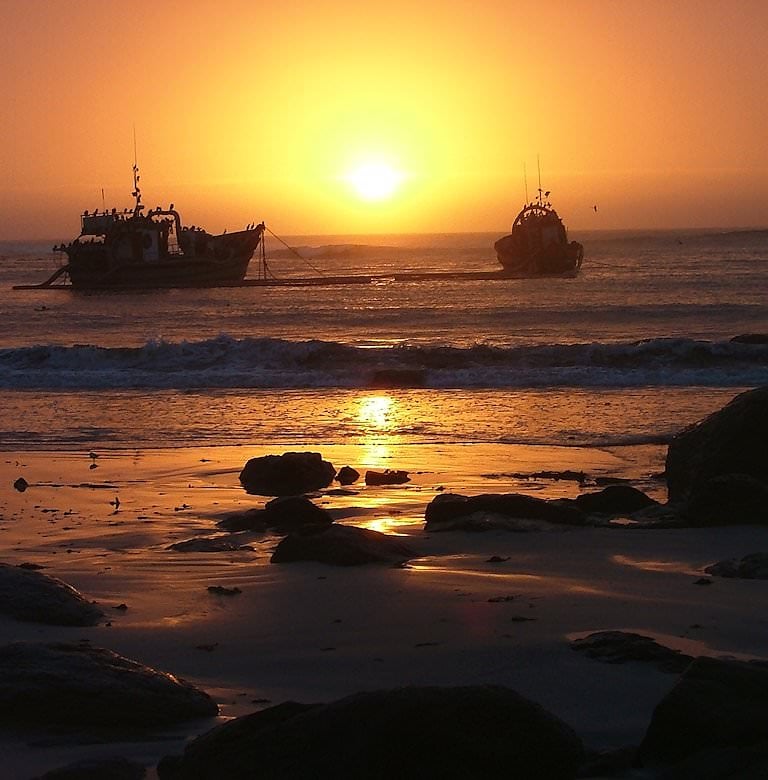21 Day In-Depth South Africa Tour
Help Me Plan- Home
- >
- South Africa Tours
- >
- 21 Day In-Depth South Africa Tour
Summary
Experience South Africa in depth on this 21-day private journey from Johannesburg to Cape Town. With your own expert guide, you’ll combine Big Five safaris, coastal highlights, cultural encounters, and world-class winelands—crafted for travelers who want an authentic, unhurried exploration.
- 1 Night Mpumalanga
- 3 Nights Southern Kruger Park
- 1 Night Swaziland
- 2 Nights Northern KwaZulu-Natal
- 2 Nights Hluhluwe-iMfolozi
- 1 Night Dolphin Coast
- 3 Nights Garden Route
- 2 Nights Overberg
- 2 Nights Cape Winelands
- 3 Nights Cape Town
Price Per Person Sharing From:
From: POAThe price can be reduced by substituting accommodations
What influences prices?
South Africa Tour Itinerary: 21 Day In-Depth South Africa Tour
We have carefully woven together our most iconic wilderness areas, hidden coastal gems, and rich cultural landmarks to create an immersive, private experience that reveals the true heart of our home. Designed for the traveler who wants to see South Africa not just as a tourist, but as a guest of the land.
- Riaan Viljoen -Day 1: Arrival / Mpumalanga

Highlights
- Arrival in Johannesburg and scenic drive into Mpumalanga
- First views of the Drakensberg escarpment and lush Lowveld
- Panoramic vistas over the Lowveld from God’s Window
Guests are met upon arrival at O.R. Tambo International Airport in Johannesburg (the flight should arrive before 9 am; if not, a first night is best spent near the airport). From here you travel via the scenic Highveld before descending into the lush Lowveld. On the way to the overnight destination near Graskop, you traverse Schoemanskloof and travel via Sabie, passing forested hills and waterfalls that introduce the natural drama of Mpumalanga. Upon arrival, guests are assisted with check-in and have a chance to settle in and relax after the journey.
A visit to God's Window, one of the highlights of the Panorama Route, follows some time for relaxation. Situated on the edge of the Drakensberg Escarpment, God’s Window offers sublime views over the Lowveld far below, with steep cliffs and indigenous forest that drop away beneath you. On clear days, the views can extend as far as the Kruger National Park, offering a spectacular first impression of South Africa’s vast landscapes.
Day 2: Mpumalanga / Kruger National Park
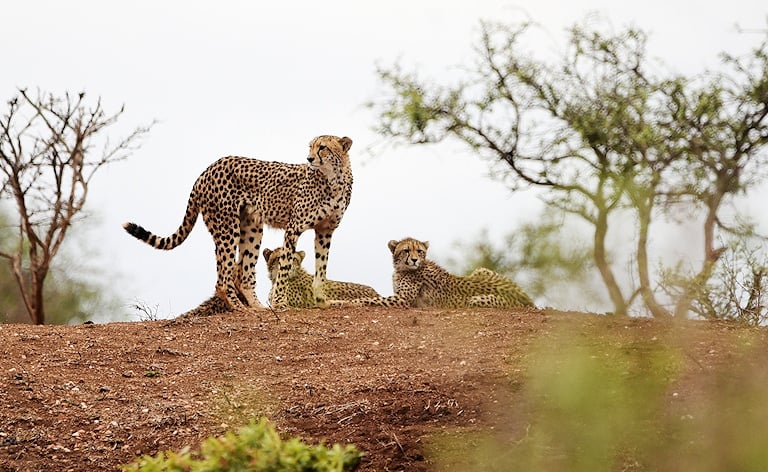
Highlights
- Enter Kruger National Park, South Africa’s flagship wilderness
- Scenic drive along the Sabie River en route to Lower Sabie
- Afternoon game drive with chances to spot Big Five predators
After breakfast and a final look at the sweeping mountain vistas, the tour travels to the Kruger National Park, South Africa's premier conservation area. Within minutes of entering the park you are likely to encounter your first wildlife, from grazing antelope to curious giraffes. The route continues through rolling savanna toward Lower Sabie on the banks of one of the two largest rivers flowing through southern Kruger, with frequent opportunities to stop and enjoy sightings along the way.
This region of Kruger is especially productive for predators, and leopards are seen almost daily in the area. On arrival at Lower Sabie, you check in to your lodgings and have some time to relax before heading out again. Later, an afternoon game drive introduces you to one of Kruger’s prime wildlife refuges, where herds of buffalo, wildebeest, zebra, and other plains game are frequently encountered, often trailed by lions and other predators attracted to this abundant prey.
Day 3-4: Kruger National Park
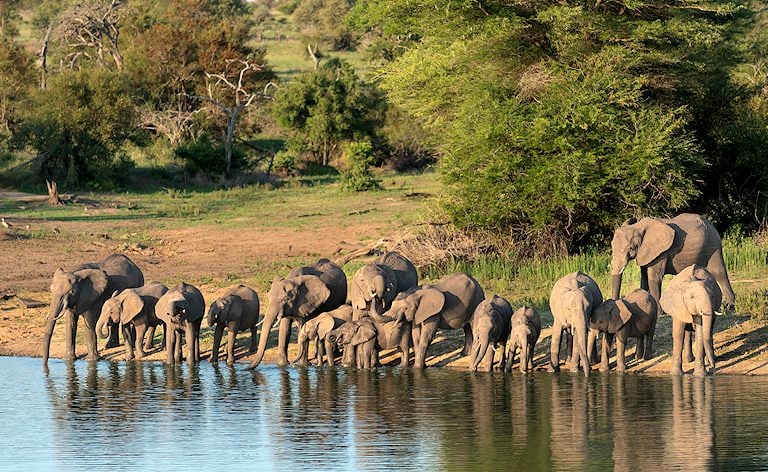
Highlights
- Extended guided game drives in southern Kruger National Park
- Quiet time at waterholes and bird hides for unrushed wildlife viewing
- After-dark safari with a ranger to seek nocturnal species and hunting predators
You will enjoy daily guided game drives in the southern Kruger National Park. The park has over 2,500 kilometers of roads from which it may be explored, and your guide will combine well-placed tar sections with quieter gravel roads that often lead into areas with a lower vehicle density. Time is frequently devoted to simply sitting at a waterhole or viewpoint, allowing the wildlife to come to you and creating unrushed opportunities for photography and observation, especially during the dry season when animals concentrate around scarce water sources.
Southern Kruger is characterized by wooded savanna and is well watered by the Sabie and Crocodile river systems, creating ideal conditions for wildlife. These habitats support significant populations of lion and leopard, offering excellent opportunities to see these predators, along with elephants, rhinos, and abundant plains game. There is also a wealth of birdlife that can be enjoyed throughout the day. On the late afternoon of the second full day, you’ll embark on a night safari with a Kruger Park ranger, searching for nocturnal creatures such as spotted genet, serval, and aardvark, as well as large predators that become more active after dark.
Day 5: Kruger National Park / Eswatini
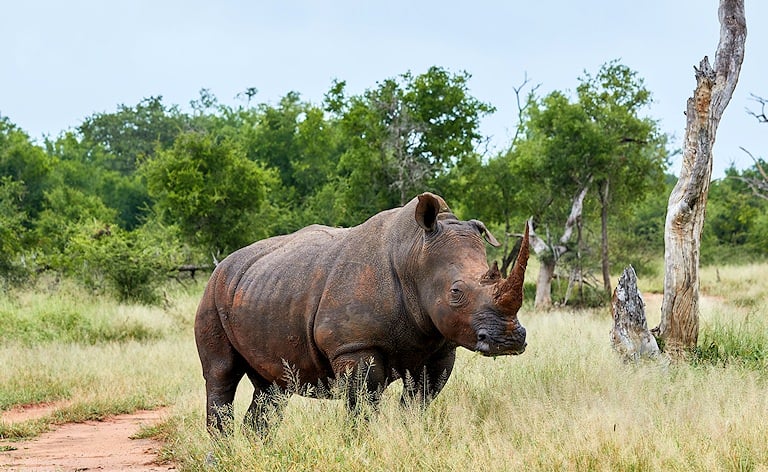
Highlights
- Final early-morning game drive in Kruger National Park
- Immersive Swazi cultural experience at Matsamo Cultural Village
- Scenic mountain journey into Eswatini and overnight in Mlilwane Sanctuary
The early morning is devoted to a last game drive in Kruger, taking advantage of the cool hours when wildlife is especially active. After exiting the park, the tour travels south toward Jeppe's Reef at the border with the tiny kingdom of Eswatini, the last absolute monarchy in Africa. Here you visit Matsamo Cultural Village, a community initiative that showcases Swazi customs, traditions, and language. Members of the surrounding Shongwe clan offer visitors an engaging look into their daily lives and heritage.
You’ll enjoy a guided tour through the working village, followed by a vibrant traditional dancing display as the beat of drums echoes through the surrounding valley. After clearing customs and immigration, the journey continues through the scenic Komati River Pass toward Mbabane, Eswatini’s capital. A mid-afternoon stop is made at a well-known candle factory and curio market before traveling to your overnight accommodations, a renovated colonial house on a koppie in the Mlilwane Wildlife Sanctuary. The lodge grounds are a haven for tiny antelope like suni and blue duiker, which often wander close to the rooms in the late afternoon.
Day 6: Eswatini / Northern KwaZulu-Natal
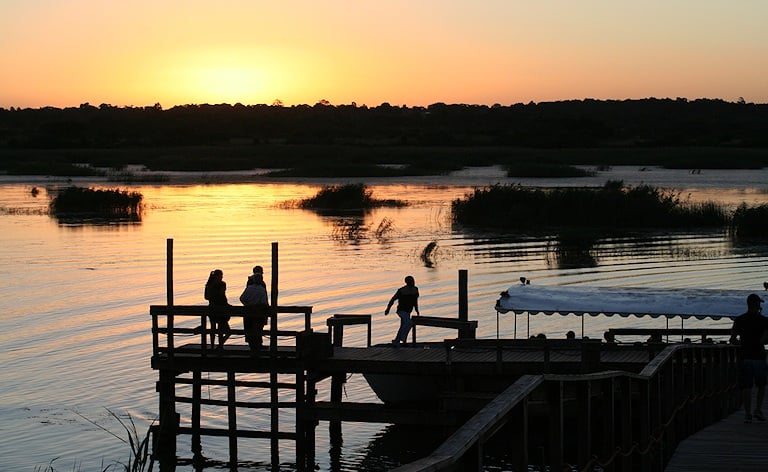
Highlights
- Breakfast on the veranda overlooking the Ezulwini Valley
- Drive through authentic Swazi countryside and rural villages
- Lake Jozini boat cruise with elephant, hippo and crocodile sightings
Your morning starts with breakfast served on the veranda of this historic colonial house overlooking the Ezulwini Valley. The garden attracts many birds and often a few small, inquisitive antelope that may watch curiously while you dine. Later, the tour departs Mlilwane and heads southeast towards the Golela border post. Along the way you pass typical rural Swazi villages, offering a genuine glimpse of daily life and a touch of the “real Africa” that is not always visible in more developed parts of South Africa.
After customs and immigration formalities, the tour enters northern Zululand and joins the N2 to the nearby village of Mkuze and your overnight accommodations at Ghost Mountain Inn. Following lunch and some time to relax, you enjoy an afternoon boat cruise on Lake Jozini, framed by the rugged Lebombo Mountains. Along its western shore it is often possible to see elephants cooling off in the shallows, as well as hippos, crocodiles, and, with some luck, rhinos visiting the water’s edge in the late afternoon light.
Day 7: Northern KwaZulu-Natal
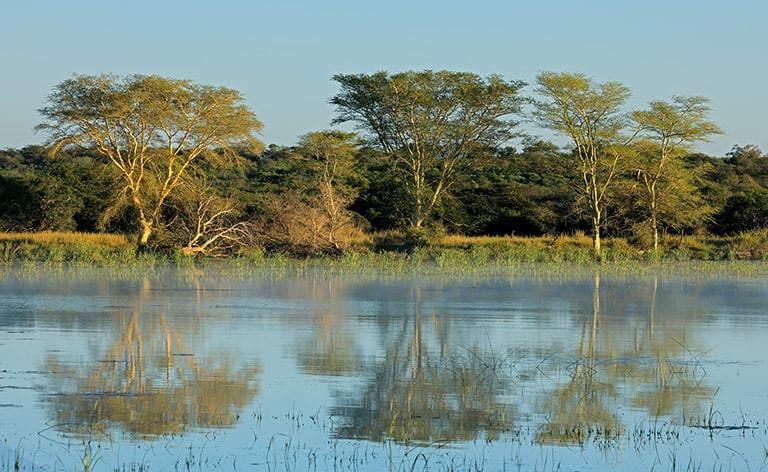
Highlights
- Morning and afternoon game drives in uMKhuze Game Reserve
- Excellent opportunities to see black and white rhino and other Big Five
- Superb birdwatching from hides in one of South Africa’s top birding areas
The day is devoted to morning and afternoon game viewing and bird-watching excursions in the uMkhuze Game Reserve. The reserve protects a mosaic of habitats, including acacia savanna, woodlands, swamps, riverine forest, and the eastern slopes of the Lebombo Mountains. This diversity is the reason uMkhuze is renowned as one of South Africa’s premier birding destinations, with hundreds of recorded species ranging from waterbirds to raptors.
uMkhuze also supports a healthy population of black and white rhinos, as well as other members of the Big Five. Game drives provide excellent opportunities to see plains game and predators, while hides overlooking pans and waterholes offer a more tranquil vantage point for patient viewing. During the day, some time is set aside specifically for birding from these hides, where you may spot everything from kingfishers and storks to colorful bee-eaters and rollers, making this day a highlight for nature enthusiasts.
Day 8: Northern KwaZulu-Natal / Hluhluwe-iMfolozi
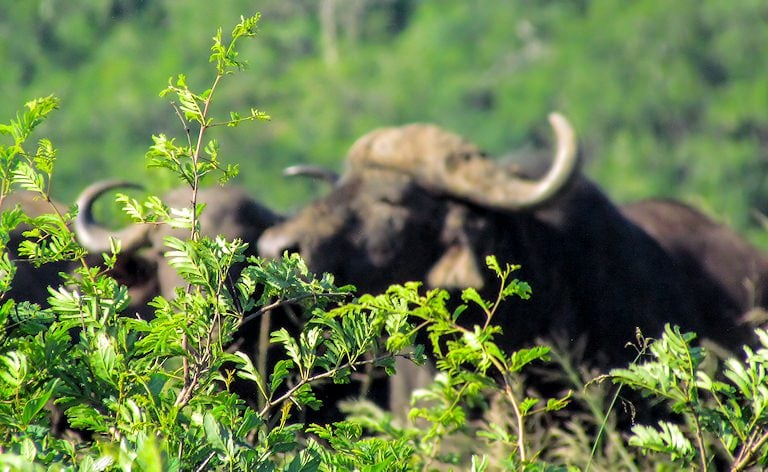
Highlights
- Travel via Zululand to the iSimangaliso / St Lucia estuary
- Boat cruise among hippos, crocodiles and waterbirds on the estuary
- First game drive in Hluhluwe-iMfolozi en route to Hilltop Camp
On departure from Ghost Mountain Inn, the journey continues southwards through Zululand to the seaside village of St Lucia. iSimangaliso Wetland Park, formerly the Greater St Lucia Wetland Park, is South Africa’s third-largest protected area and a UNESCO World Heritage Site. It conserves an extraordinary swath of coastline stretching roughly 280 km from the Mozambican border to Mapelane, protecting estuaries, dune forests, lakes, and beaches in a single linked system.
The park is home to around 1,200 crocodiles and some 800 hippos, many of which wander through the streets of St Lucia at night. On arrival, you enjoy a relaxed cruise on the estuary of about two hours, offering close-up views of these animals as well as abundant birdlife along the reed-lined banks. Afterwards, a short driving tour of the village provides a sense of its laid-back coastal atmosphere before the tour travels inland to the Hluhluwe-iMfolozi Park. An afternoon game drive is conducted en route to Hilltop Camp, introducing you to this historic conservation area.
Day 9: Hluhluwe-iMfolozi
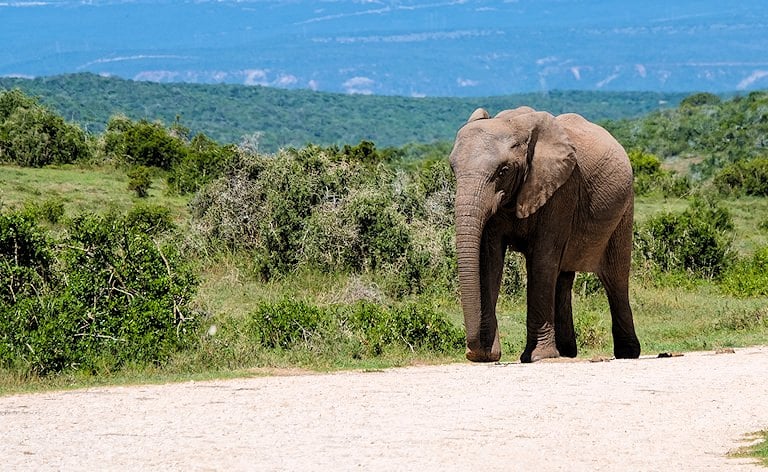
Highlights
- Full day of guided game drives in Hluhluwe-iMfolozi Park
- Learn about rhino conservation in the home of Operation Rhino
- Opportunities to encounter the Big Five and endangered cheetahs
Your day is devoted to guided game drives in the Hluhluwe-iMfolozi Park, a deeply scenic reserve of rolling hills and river valleys. This park is a global stronghold for both black and white rhinos and became famous as the birthplace of Operation Rhino, the pioneering project that brought white rhinos back from near extinction in the mid-20th century.
Today, as poaching once again threatens these giants, Hluhluwe-iMfolozi remains at the forefront of rhino conservation. The 96,000-hectare wilderness area is also home to elephant, Cape buffalo, lion, and leopard, as well as the highly endangered cheetah and a wide range of plains game. Game drives explore different sectors of the park, revealing changing habitats and frequent wildlife encounters, while your guide shares insight into the park’s conservation history and its ongoing efforts to protect these iconic species.
Day 10: Hluhluwe-iMfolozi / Dolphin Coast
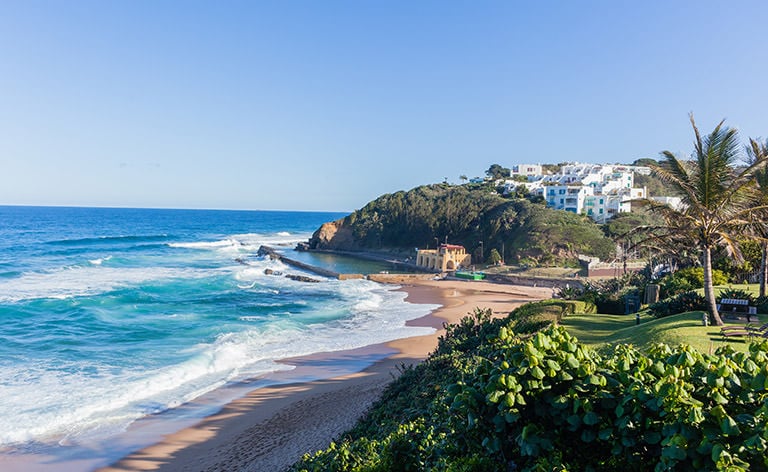
Highlights
- Final morning safari in Hluhluwe-iMfolozi
- Scenic drive through Zululand hills and countryside
- Relaxing afternoon overlooking the Indian Ocean on the Dolphin Coast
After a final morning game drive and breakfast at Hilltop Camp, you say goodbye to the wilderness of Zululand and head toward the Indian Ocean. The route passes through the scenic district of Babanango before reaching the town of Melmoth, named after Sir Melmoth Osborn, the first British Chief Native Commissioner for Zululand. Rolling hills, forests, and sugarcane fields create a varied backdrop throughout the drive as you approach the subtropical coast.
On arrival in Ballito, you are assisted with check-in at The Boathouse. The property overlooks the Indian Ocean in an area known as the Dolphin Coast, named for the pods of dolphins that can often be sighted from shore as they ride the surf. The late afternoon is spent at leisure, giving you time to stroll along the beach, enjoy the sea breeze from the deck, or simply relax as the sun sinks over the water.
Day 11: Dolphin Coast / Garden Route
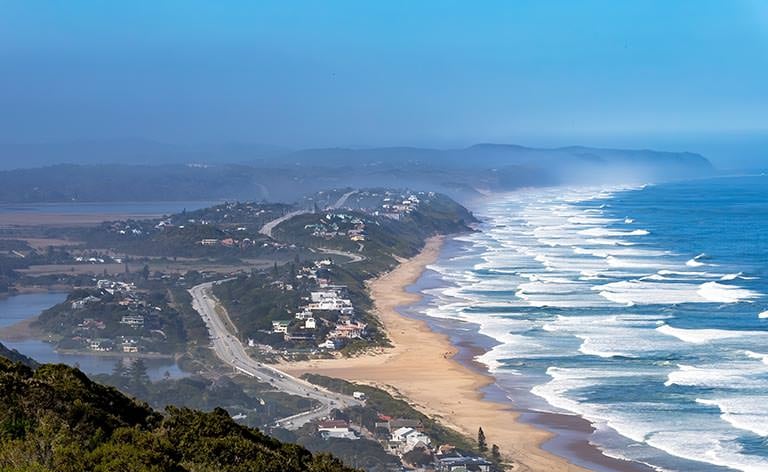
Highlights
- Arrival in the heart of the Garden Route
- Settle into the coastal village of Wilderness between forests and long beaches
After breakfast, guests are transferred from The Boathouse to Durban’s King Shaka International Airport for a short flight to Johannesburg and an onward connection to George in the heart of the Garden Route. This coastal strip is renowned for its combination of indigenous forest, lagoons, beaches, and mountains, and is one of South Africa’s most beloved holiday regions.
Guests are met upon arrival at George Airport, from where a short, scenic drive leads to the overnight destination in the coastal town of Wilderness. Wilderness is nestled between a long stretch of sandy beach and forested hills, with inland waterways and lagoons dotting the landscape. You settle into your guest house and can savor the sea air, perhaps taking a gentle walk on the beach or along the lakeshore before dinner.
Day 12: Garden Route
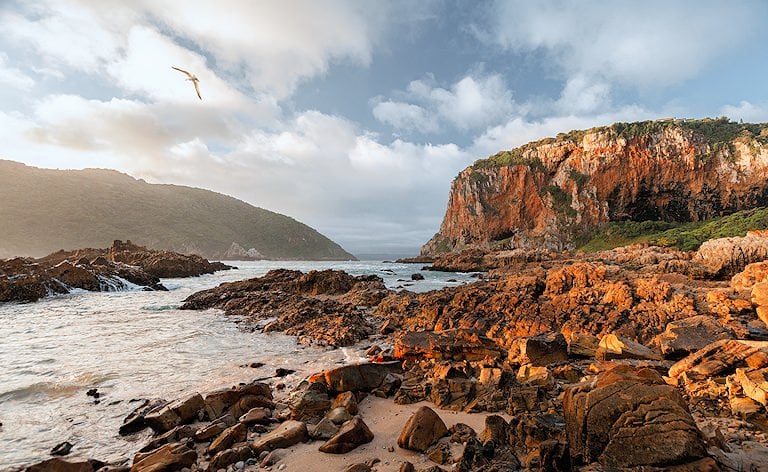
Highlights
- Visit to Knysna and its famous lagoon and Heads
- Lagoon ferry crossing to Featherbed Nature Reserve eco-tour
- Close-up elephant interaction at the Knysna Elephant Sanctuary
In the morning, the tour visits Knysna, a charming town built primarily on the northern shore of a large warm-water estuary fed by the Knysna River. The estuary opens to the ocean between the dramatic sandstone cliffs known as the Knysna Heads, whose treacherous channel has claimed many boats and fishermen over the years. The interplay of lagoon, forest, and town makes this one of the Garden Route’s most picturesque stops.
You board a ferry that crosses the lagoon to the Featherbed Nature Reserve, a prime example of sustainable ecotourism with strictly controlled visitor numbers. A guided eco-experience introduces the reserve’s coastal fynbos and viewpoints over the lagoon and ocean. In the afternoon, the Knysna Elephant Sanctuary offers a respectful, educational encounter with African elephants, including the opportunity to touch and feed these gentle giants under the guidance of experienced handlers. Afterward, you return to Wilderness for a relaxed evening.
Day 13: Garden Route
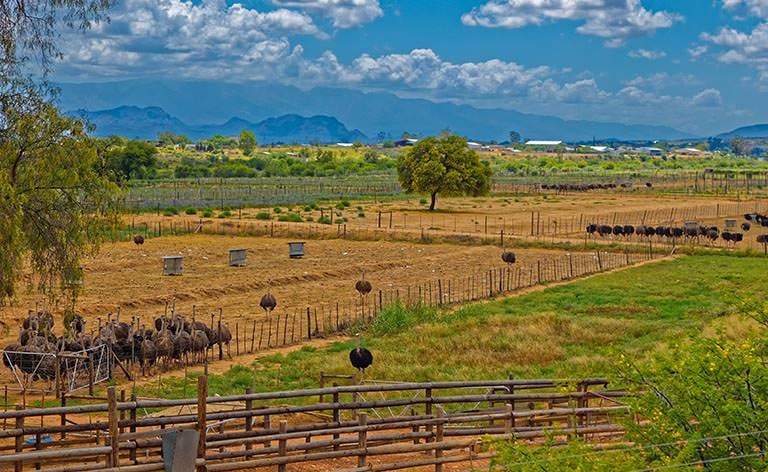
Highlights
- Scenic drive over the Outeniqua Mountains into the Little Karoo
- Guided tour of an ostrich farm outside Oudtshoorn
- Explore the Cango Caves and visit Cango Wildlife Ranch with cheetah encounters
After breakfast, guests travel to Oudtshoorn by crossing the Outeniqua Mountains, whose gentler southern slopes give way to steep drops on the northern side into the semi-arid Little Karoo. Oudtshoorn is a prosperous agricultural town that historically relied on ostrich farming, which earned it the nickname “ostrich capital of the world.” Here you visit a local ostrich farm to learn more about the world’s largest bird and its role in the region’s history and economy.
The tour then continues to the Cango Caves, an extensive system of tunnels and chambers extending for more than four kilometers, of which only a portion is open to visitors. After exploring the caves with a guide, you visit the Cango Wildlife Ranch, one of South Africa’s leading cheetah conservation and breeding facilities. Guests have the opportunity, under careful supervision, to enter a secure area to interact with a tame cheetah and learn more about efforts to protect this endangered species.
Day 14: Garden Route / Overberg
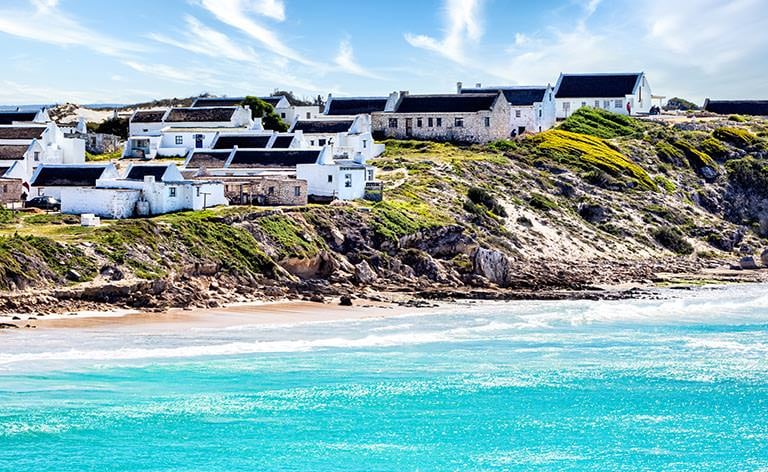
Highlights
- Discover maritime history at Mossel Bay’s Dias Museum complex
- Explore Swellendam and the historic Drostdy Museum
- Coastal stay in Arniston with an afternoon walk to the Waenhuiskrans sea cave
Today you travel west to the coastal city of Mossel Bay. During the boom years of ostrich farming, Mossel Bay served as a key export port for ostrich products to Europe and the United States. You visit the Dias Museum complex, named after Portuguese explorer Bartolomeu Dias, who landed here in 1488. The museum preserves his historical landing site and the famous “post office tree,” where early sailors left messages for passing ships.
Highlights include a life-sized replica of Dias’s caravel, which sailed to Mossel Bay in 1987 as a gift from Portugal, and a historic map of the bay produced by Dutch sailor Cornelius de Houtman in 1595. The journey then continues to Swellendam, a charming town in a well-watered valley at the foot of the Langeberge, where you can appreciate the architecture and visit the Drostdy Museum, built in 1747 in Cape Dutch style. Later, rolling wheat fields lead you to the fishing village of Arniston. In the afternoon, a coastal walk from the hotel takes you to Waenhuiskrans, an impressive sea cave eroded from the sandstone cliffs, before you retire for the evening.
Day 15: Overberg
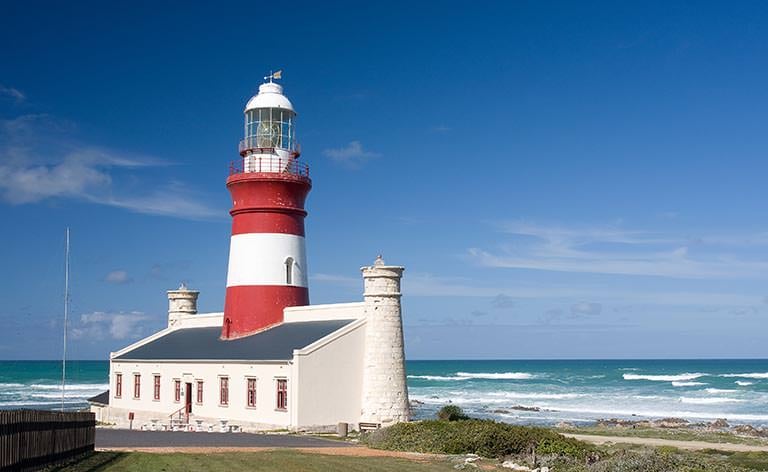
Highlights
- Excursion to Cape Agulhas, the southern tip of the African continent
- Explore the Agulhas Nature Reserve and rugged coastline
- Visit the historic lighthouse and museum at the meeting of two oceans
On this day, you enjoy an excursion to Cape Agulhas, the southernmost tip of the African continent and the official meeting point of the Atlantic and Indian Oceans. The name “Cape of Needles” (Cabo das Agulhas) was given by early Portuguese sailors, possibly in reference to the dangerous rocks and reefs in the area or to the fact that magnetic and true north coincided there in the 1500s.
The region around Agulhas is a paradise for nature lovers, with rich coastal fynbos, dramatic rocky shores, and prolific birdlife. You visit the local museum and the historic lighthouse, one of the oldest in the country, before exploring the wave-lashed coastline. The combination of maritime history, geology, and coastal scenery makes this a memorable stop. Later in the afternoon, you return to Arniston for a relaxed evening by the sea.
Day 16: Overberg / Winelands
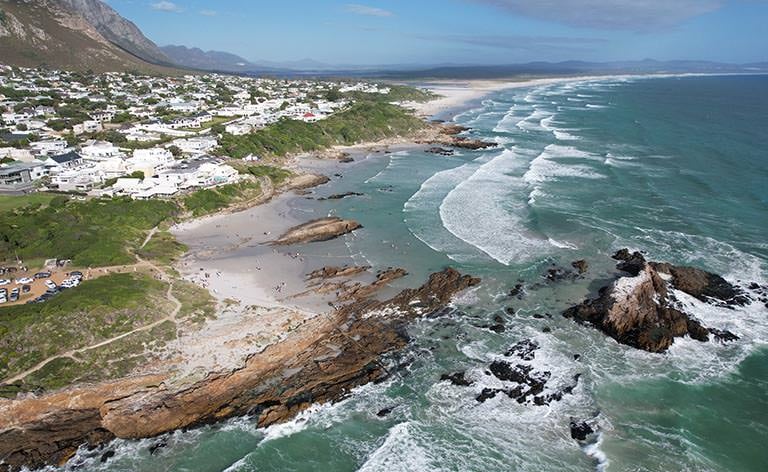
Highlights
- Back-road journey through the Overberg via Napier and Stanford
- Land-based whale watching in Hermanus (seasonal)
- Scenic coastal drive via Betty’s Bay to the Cape Winelands
Your tour travels through the scenic Overberg countryside along quieter back roads, passing the small towns of Napier and Stanford before reaching Hermanus, one of South Africa’s best-loved seaside villages. Hermanus is widely recognized as one of the world’s finest destinations for land-based whale watching in season, when southern right whales come close to shore between roughly June and November. The village is also known for its famous “whale crier,” who uses a kelp horn to signal sightings to onlookers.
The town inspired Zakes Mda’s novel The Whale Caller, in which the whale crier forms a bond with a southern right whale named Sharisha. After time to enjoy the coastal scenery, the tour follows the dramatic coastal route via Betty’s Bay and the Kogelberg Biosphere, then on to the Strand and finally the Cape Winelands. As mountains give way to vineyards, you arrive in the Franschhoek valley and settle into your guest house in the historic village.
Day 17: Winelands
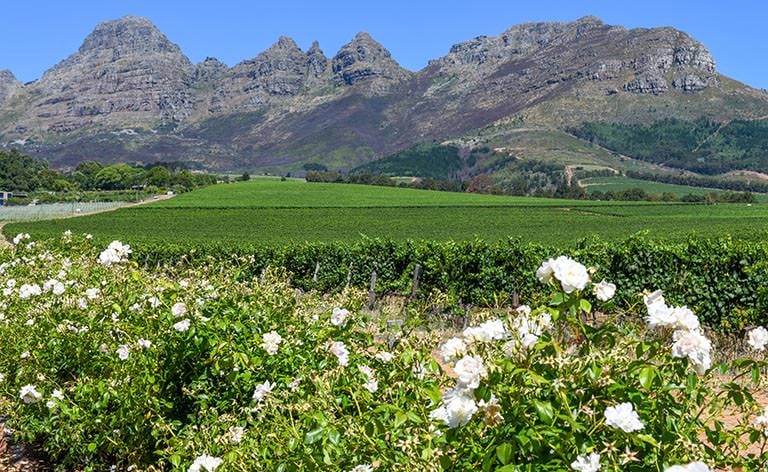
Highlights
- Explore Franschhoek village and its French Huguenot heritage
- Wine tastings at select Franschhoek valley estates
- Superb Winelands scenery of vineyards framed by mountains
The day is devoted to exploring the town of Franschhoek and visiting three of the finest wine estates in the area. The magnificent Franschhoek Valley lies between two towering mountain ranges in the Cape Winelands and was first settled in 1688 by French Huguenot refugees. Originally called Olifantshoek, or “Elephants’ Corner,” because of the herds that once roamed here, the valley eventually became known as Franschhoek, or “French Corner.”
Many of the original Huguenot farms, such as La Motte, La Cotte, Cabrière, Provence, Chamonix, Dieu Donné, and La Dauphine, have preserved historic farmhouses and evolved into renowned wine estates. Guests sample wines at some of these properties while taking in the scenery of vineyards framed by steep mountains. Franschhoek is also famous for its outstanding restaurants, strong food culture, and carefully preserved architecture, all of which contribute to its reputation as the “food and wine capital” of South Africa.
Day 18: Winelands / Cape Town
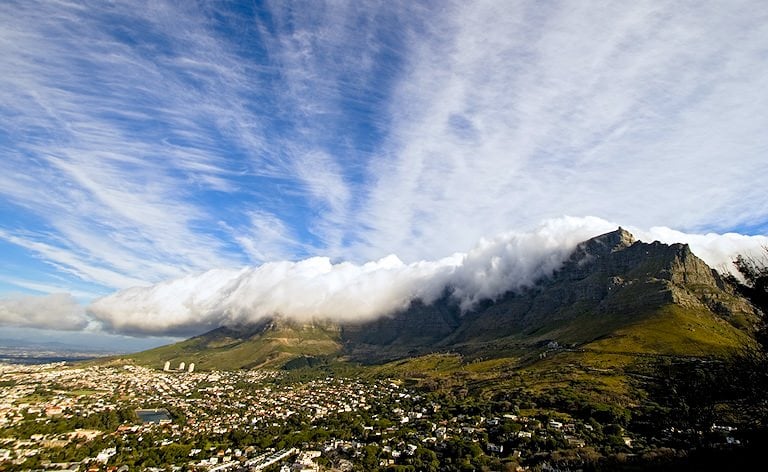
Highlights
- Historic tour of Stellenbosch, the “Town of Oaks”
- Wine tastings along the renowned Stellenbosch Wine Route
- Late-afternoon drive into Cape Town and the V&A Waterfront area
Today focuses on Stellenbosch and the surrounding Winelands. Stellenbosch is the oldest town in South Africa after Cape Town and one of its best-preserved historical centers. Shady oak-lined streets, irrigation furrows, and fine examples of Cape Dutch, Victorian, and Georgian architecture lend it a distinctive character and earned it the nickname “Town of Oaks.” The Stellenbosch Wine Route, founded in 1971, was South Africa’s first formal wine route.
The route is now divided into several sub-routes and includes more than 200 wine and grape producers in the hills around town. While the region originally gained fame for its white wines, it now produces many acclaimed reds, especially Cabernet Sauvignon. As you travel between estates such as Lanzerac and Tokara, you enjoy tastings, cellar tours, and scenic drives through the Hottentots-Holland foothills. In the late afternoon, your tour meanders westward into Cape Town and the V&A Waterfront area, where you check in at The Portswood.
Day 19: Cape Town
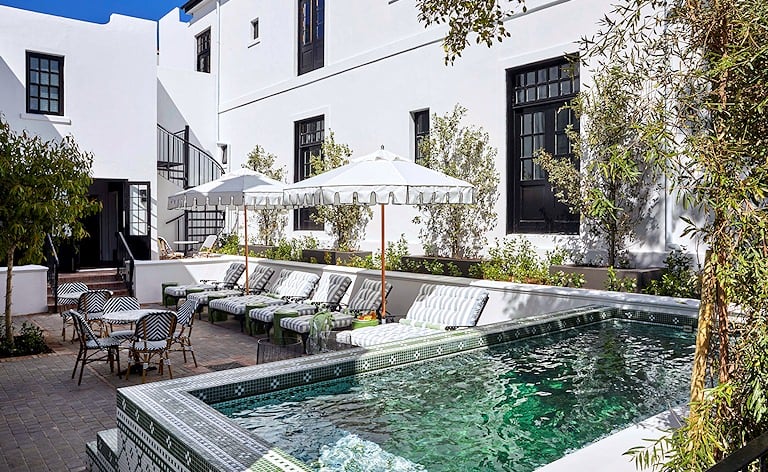
Highlights
- Cable car ascent (weather permitting) to the summit of Table Mountain
- Panoramic views over Cape Town, Table Bay and the Cape Peninsula
- Leisurely walk through Kirstenbosch Botanical Gardens and the treetop walkway
The day is dedicated to exploring one of the world’s most beautiful cities. After breakfast, you ascend (weather permitting) by cable car to the summit of Table Mountain, arguably Africa's most famous natural landmark. From the top, sweeping views extend across Table Bay, Robben Island, the city bowl, and the Cape Peninsula as it stretches southward toward the meeting point of the two great oceans.
Later, you visit Kirstenbosch National Botanical Garden on the eastern slopes of Table Mountain near Skeleton Gorge. Established in 1913 on land bequeathed by Cecil John Rhodes, Kirstenbosch is dedicated to the conservation and display of South Africa’s indigenous flora, including a rich collection of fynbos and a striking indoor display of succulents and a baobab tree. A highlight is the “Boomslang” canopy walkway, a sinuous treetop bridge that offers a unique perspective over the gardens and forested slopes.
Day 20: Cape Town
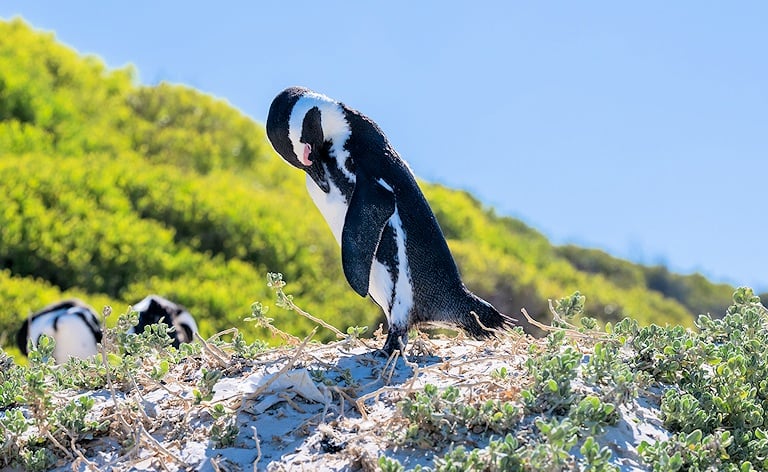
Highlights
- Scenic Chapman’s Peak Drive along the Atlantic seaboard
- Visit to the Cape of Good Hope Nature Reserve and walk to Cape Point
- Stop at Boulders Beach to see the African penguin colony
Breakfast is followed by a drive along the Atlantic seaboard, passing the beaches of Camps Bay and Hout Bay before you travel over spectacular Chapman’s Peak Drive, carved into the cliffs between Hout Bay and Noordhoek. This famously scenic route leads you to the Cape of Good Hope section of Table Mountain National Park, a botanical and scenic treasure that protects fynbos-covered slopes and a rugged coastline.
Within the reserve, you walk to the edge of Cape Point, where the cold Atlantic and warmer Indian-influenced waters mingle offshore. This dramatic headland has played a central role in maritime lore and was once considered the place where the eastern and western halves of the world met. On the return route to Cape Town, you follow the False Bay coastline and stop at Boulders Beach, where you can observe a thriving colony of African penguins from boardwalks set among granite boulders and sheltered coves.
Day 21: Departure
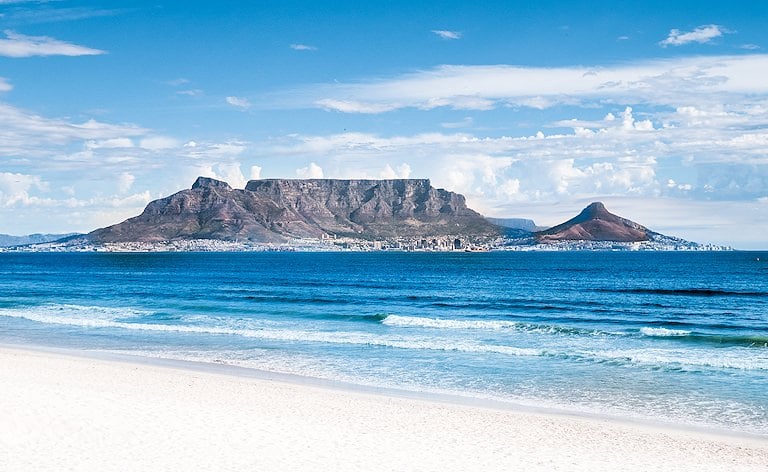
Highlights
- Unhurried final morning in Cape Town with time to relax
- Opportunity for last-minute shopping or photos at the V&A Waterfront
- Assisted departure from your hotel for your onward journey home
The final morning of your South African journey is spent at leisure in Cape Town. Depending on your flight schedule, you may have time for a relaxed breakfast, a last stroll around the V&A Waterfront, or a quiet coffee with views of the harbor and Table Mountain. Your guide remains on hand to assist with timing and any final arrangements so that the last few hours of your stay remain unhurried.
Closer to departure, you are met by your guide, who helps with check-out, luggage, and any last-minute shopping or photo stops before accompanying you to Cape Town International Airport. Here you say farewell after an in-depth exploration of South Africa that has linked wilderness, coastlines, winelands, and vibrant cities, leaving you with lasting memories and a deeper understanding of this remarkable country.
Included
- 1 Night Angels View
- 3 Nights at Lower Sabie Rest Camp
- 1 Night Reilly's Rock
- 2 Nights Ghost Mountain Inn
- 2 Nights Hilltop Camp
- 1 Night Boathouse
- 3 Nights Mes Amis Beach Guest House
- 2 Nights Arniston Hotel
- 2 Nights Maison Chablis
- 3 Nights Portswood
- Private African Sky Guide: From Day 1–21
- Private Air Conditioned Vehicle: from Day 1–21
- All Meals Specified
- Durban to Johannesburg
- Johannesburg to George
- All daily road transfers between locations and activities are handled by the Private Guide Vehicle (Day 1–21)
- Drop-off at King Shaka International Airport (Durban) for flight (Day 11)
- Pick-up at George Airport and drop-off at Cape Town International Airport (Day 11 & Day 21)
- All Activities Included in the Itinerary, Unless Stated as Optional
- All Entrance Fees to Places Mentioned in the Itinerary, Unless Stated as Optional
- Tourism Levy
- All Applicable Taxes
- Park Fees, where Applicable
Excluded
- International Airfare (To and From South Africa)
- Personal and Medical Insurance
- Drinks
- Gratuities
21 Day In-Depth South Africa Tour
